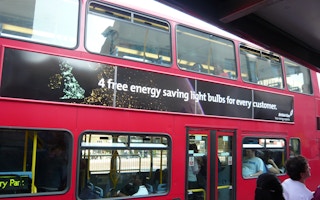Tallying up the toll of our individual roles in fueling climate change is a daunting task. To make decisions simpler, we rely on the sorts of trade-off behaviors and cognitive tricks that govern our relationships with each other, a pair of researchers suggests.
“Reciprocity and balance in social relations have been fundamental to social cooperation, and thus to survival, so the human brain has become specialised through natural selection to compute and seek this balance,” Patrik Sörqvist, the lead author and a professor of environmental psychology at the University of Gävle in Sweden, said in a statement.
“But when applied to climate change, this social give-and-take thinking leads to the misconception that ‘green’ choices can compensate for unsustainable ones.”
Humans have evolved a set of commonsense tools called “heuristics” that help direct our thinking on certain problems. They’re quick, don’t rely on a lot of energy, and are “largely successful when applied to the type of problem they’re supposed to solve,” the authors write.
But if these tools don’t fit the problem that the brain is trying to solve, they can lead to mistakes in judgment. For example, climate change is more plausible to many people when it’s hot outside, Sörqvist and fellow University of Gävle psychologist Linda Langeborg write March 4 in the journal Frontiers in Psychology.
“
The best thing for the environment would of course be for us to consume less overall.
Patrik Sörqvist, professor, environmental psychology, University of Gävle
Equating our personal relationships with our contributions to climate change is something of a false analogy. You might be able to make up for forgetting a friend’s birthday by taking her out to dinner later on. But that sort of moral calculus doesn’t work when even “environmentally friendly” activities have a carbon-releasing cost, Sörqvist said.
“People might purchase some extra groceries because they are ‘eco-labeled’; [they] think that they can justify jetting abroad for vacation because they have been cycling to work; or take longer showers because they’ve reduced the water temperature,” he said.
Sörqvist also pointed to the carbon-trading and tree-planting programs that corporations use to negate their carbon footprint. He and Langeborg write that such conventions “may also license irresponsible behavior for people prepared to pay for it.”
“Meanwhile, the best thing for the environment would of course be for us to consume less overall,” Sörqvist said.
The psychologists suggest that better governmental control of advertising messages might help consumers and companies make better decisions.
“Terms like ‘eco-friendly’ or ‘green’ encourage the view that objects, behaviors and decisions with these labels are ‘good’ rather than ‘less bad’ for the environment,” Langeborg said in the statement.
“[W]e should give consumers immediate feedback on how much ‘eco-labeled’ and other products add to the environmental impact of what they are buying,” she said. Supermarkets could provide a total carbon footprint along with a shopper’s final bill, she added.
Even the “green” choices aren’t helping to compensate for more carbon-intensive choices, despite what our brains might be telling us, the authors write.
“You can’t kiss and make up with the environment,” Sörqvist said. “Jetting to the Caribbean will make you a huge environmental burden, no matter how many meat-free Mondays you have.”
This story was published with permission from Mongabay.com.










